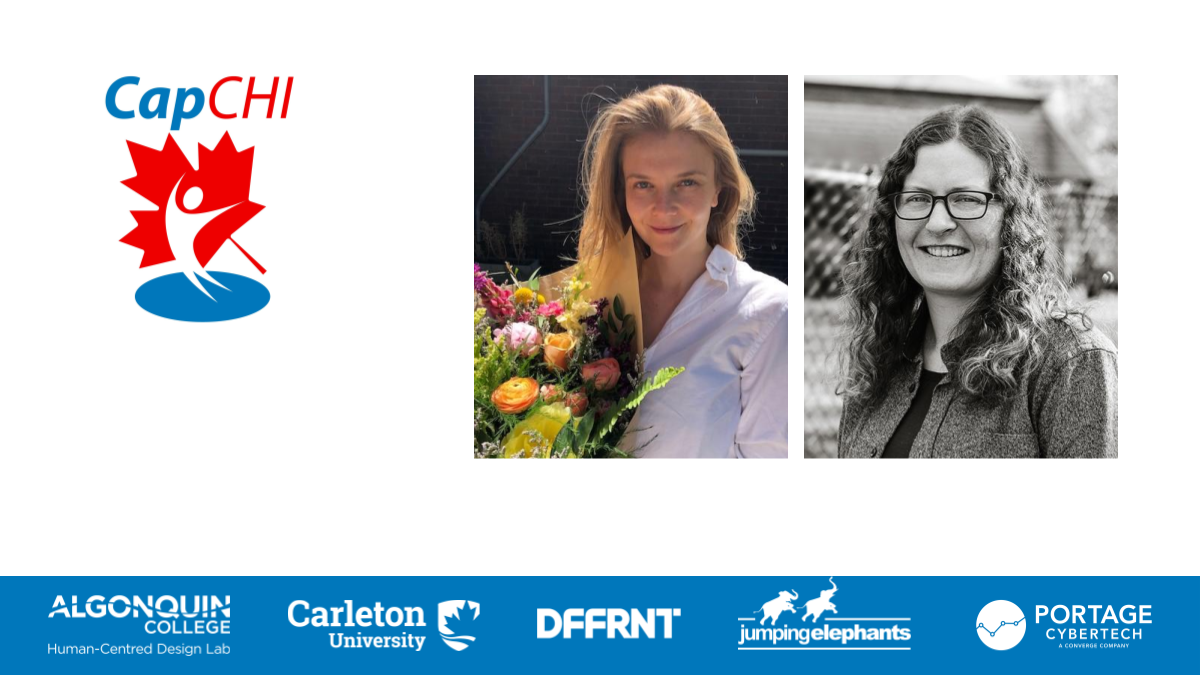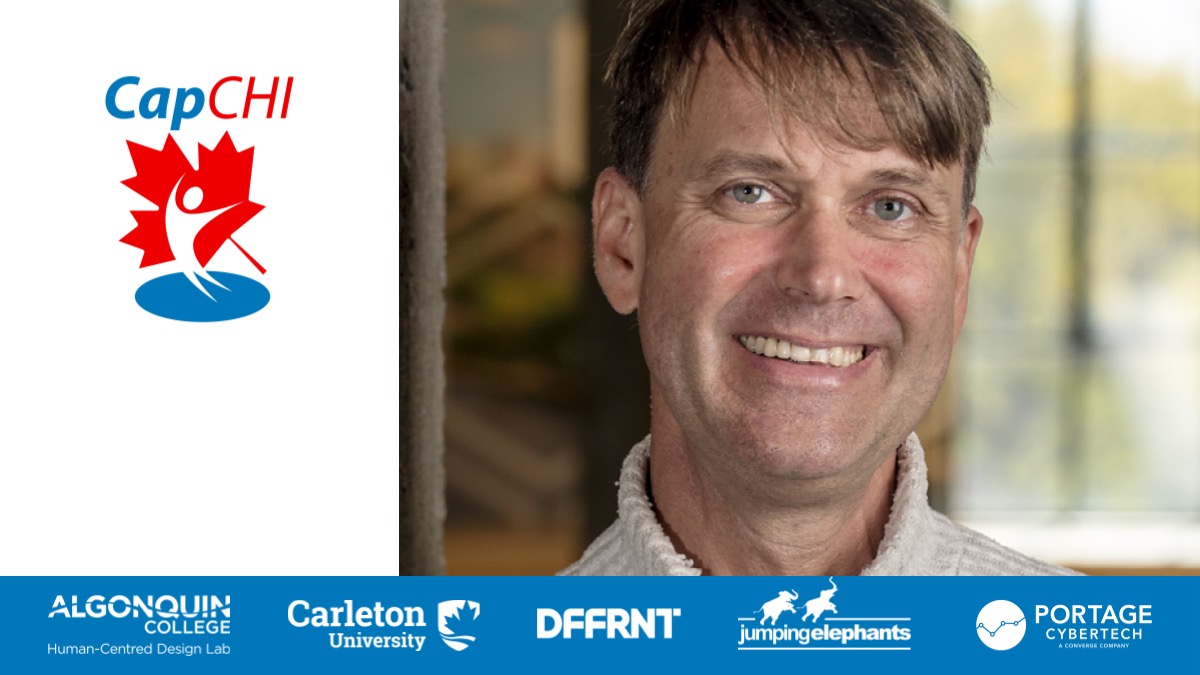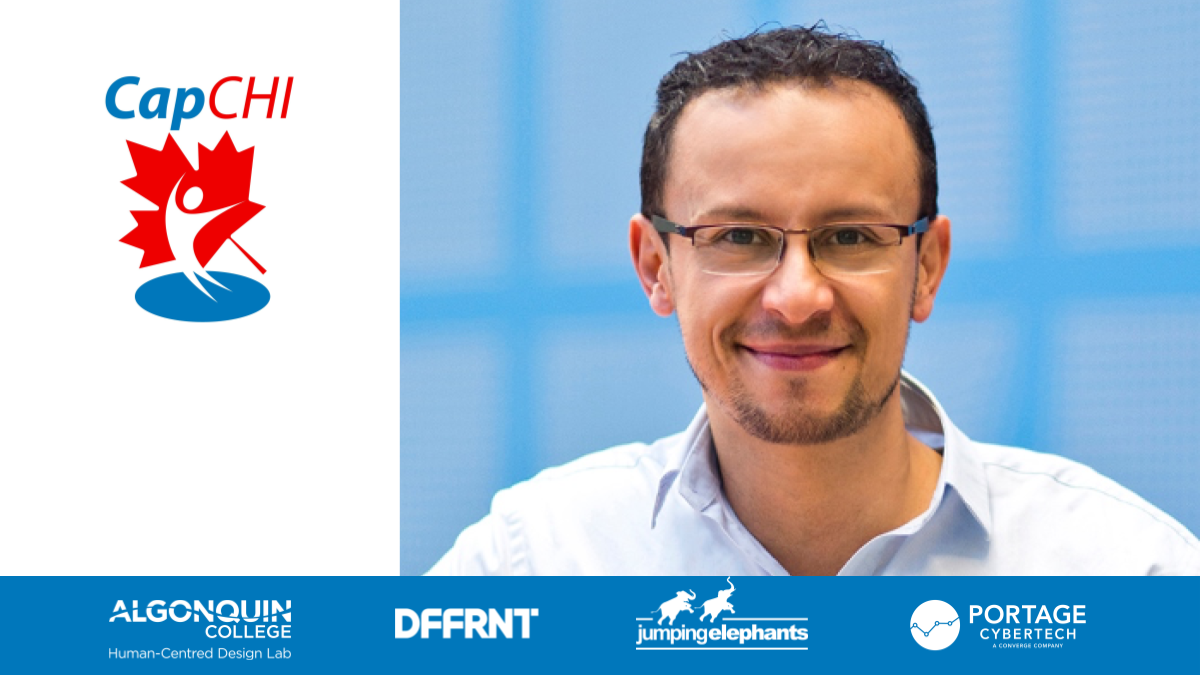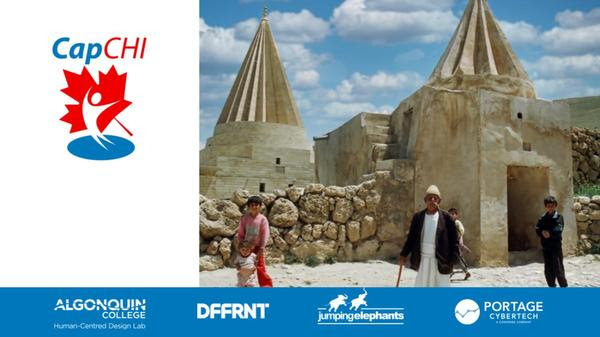CapCHI is on break in June, July and August 2023. We will be back in September for the 2023-2024 season!
CapCHI is on break in June, July and August 2023. We will be back in September for the 2023-2024 season!
Hosted by CapCHI
CapCHI invites you to a very special evening featuring 6 projects developed by 9 students from various programs at the University of Ottawa, Carleton University and Algonquin College. In a pitch-style format, the event will feature a short presentation by each student or team followed by questions from the audience.
Hosted by CapCHI
AI is transforming the world. When we see a hybrid of intelligence, that is, human intelligence and AI, co-existing in our daily work and lives, should we be more excited or concerned? How do we mitigate the negative aspects of embracing AI and what type of control can we apply? Taking a forward-thinking approach, this talk aims to explore future directions in this new era and broaden the horizon of humans when working with machines.
Hosted by CapCHI
Join us to learn more about inclusivity in research and design from Lanre Jerry-Ijishakin.
Topics include:
• Practical tips for implementing inclusivity from ideation to product Launch
• Justifications for investing in Inclusive design
• Actionable steps toward inclusive design
Hosted by CapCHI
Join us to learn more about the small but mighty Innovation Hub team within Veterans Affairs Canada. Topics include:
Hosted by CapCHI
This is a special edition of CAPCHI, where we will be online for a lunch and learn for December. It will be 1.5 hours to allow for questions.
Accessibility is unfortunately still an afterthought on many projects. User interaction and accessibility requirements are poorly documented, at best. Or forgotten, when handing over designs to developer teams. Why fix it later, when you could do it right to start with? Why, What and How designers can document different aspects of accessibility and user interactions requirements to build better, more inclusive products from the start.
Hosted by CapCHI
At our November event design practitioner Noah Fang shares his exploration at the intersection of design thinking and organizational transformation. In his talk he will discuss themes related to the next bigger context; design in organizations; expertise under siege; transformation by design; leadership by design; and activism by design.
Hosted by CapCHI
10 years ago Social Media broke into the mainstream. Facebook, Twitter and Reddit promised an unfiltered view into our collective consciousness. Today influencers and bots actively game the system, skewing perception towards their agendas. There are still insights that can be mined from Social Data, but with ever increasing effort. At Advanced Symbolics we developed a tool called askpolly that rethinks Social Data from the ground up, making finding those insights effortless. I’ll discuss every aspect of Social Data we considered in askpolly’s development and how at every step we defined the user experience and tackled tough technological challenges.
Hosted by CapCHI

Providing equitable access to healthcare services imposes a diverse set of challenges, especially when the target population faces limited geographical accessibility, literacy, and socio-economical barriers. A plausible way forward to improve healthcare in the Global South countries is by promoting the development and use of digital technologies. New approaches such as Human-Computer Interaction for Development (HCI4D), have highlighted the need for a deepest human-centred design approach toward localized digital solutions that properly work in a resource-constrained context.
Hosted by CapCHI

On 3 August 2014, Islamic State of Iraq and Syria, or ISIS, attacked the Sinjar district of Iraq. This district has historically been the home ground of Yezidi. The attack marked the beginning of a genocidal campaign of brutal violence directed against the Yezidi, with the aim to eliminate them and their culture. Many Yezidis fled their homes to the safety of refugee camps from which they applied for refuge in many different countries. Alan Frank, applied his knowledge of Human-Centred Design in the execution of two different projects to support the Yezidis in their new homes.
Join us for an exploration of non-traditional applications of Human-Centred Design. Both projects are “works in progress” and there will be plenty of time for questions and any ideas would be appreciated.
Please note: The War Crimes committed by ISIS against the Yezidis are extremely violent. While this talk will not focus on the specifics of these events, the knowledge base includes issues such as rape and kidnapping. We routinely mention this because the material can trigger Secondary Post Traumatic Syndrome in vulnerable individuals.